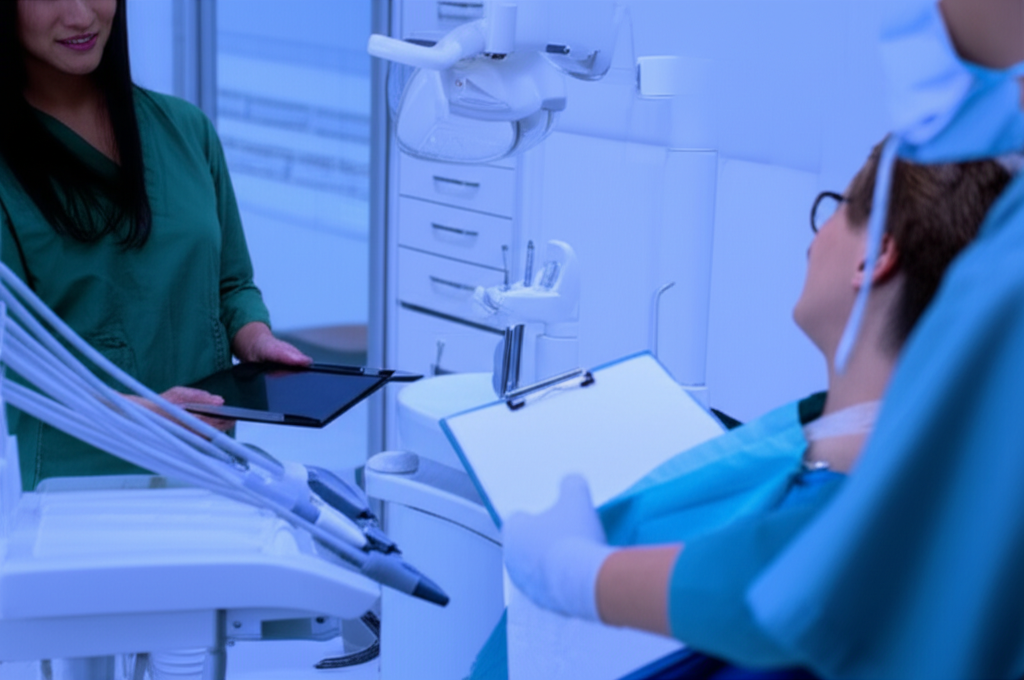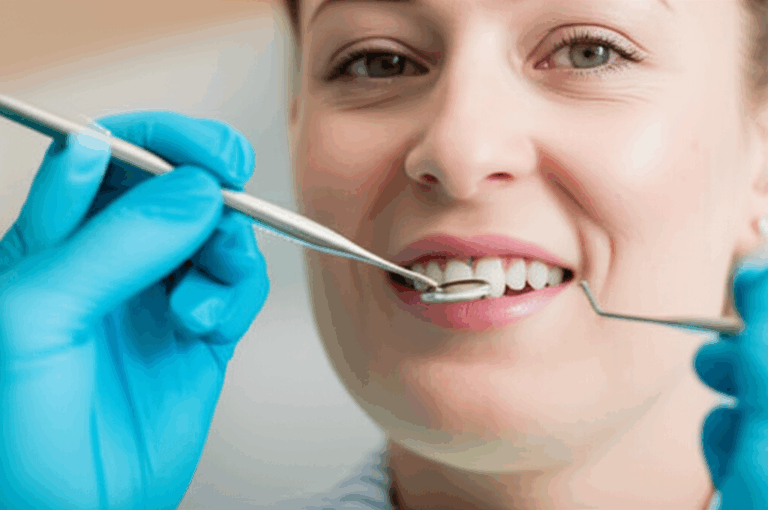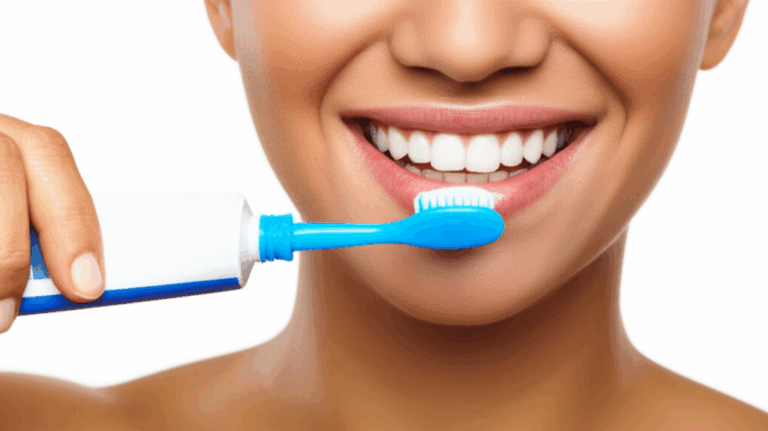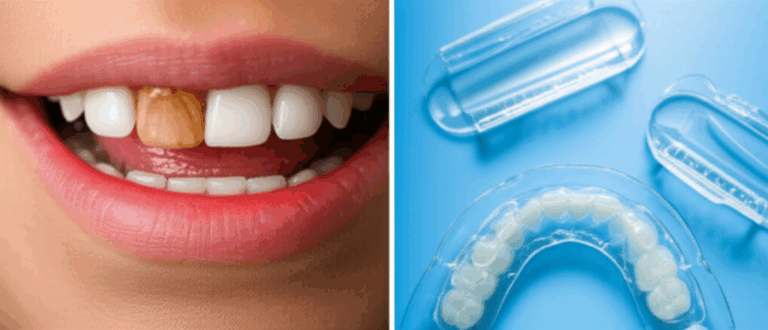
Are Dentists Subject to HIPAA?
Your Helpful Guide to Dental Rules & Patient Privacy
That Dental Visit—Is Your Privacy Really Protected?
You sit in the dentist’s chair, mouth open, bib on. Maybe you’re thinking about work or what’s for lunch. But you also might wonder: “My dentist has my health records, even pictures of my teeth. Is my dental info private, just like at the doctor? Does HIPAA matter for my dentist?”
If you’ve wondered this, you’re not alone. Whether you are a dentist wanting to do right by patients, a team member, or a patient wanting your info safe, knowing about HIPAA in dentistry is important. The answer is clear: dentists do have to follow HIPAA. But let’s break down what that means for you, your office, or your next visit—without any confusing words.
In This Article
- Dentists and HIPAA: The Simple Answer
- The Reach of HIPAA in Dentistry
- What Is Dental PHI?
- The Three Main Parts of Dental HIPAA Rules
- HIPAA In Daily Dental Office Life
- What Can Go Wrong? HIPAA Problems in Dentistry
- How to Follow Dental HIPAA Rules
- Takeaway: HIPAA, Trust, and You
Dentists and HIPAA: The Simple Answer
Let’s get right to it. Are dentists covered by HIPAA? Yes. If your dental office sends any patient info electronically for things like insurance or referrals, the law called the Health Insurance Portability and Accountability Act—HIPAA—applies.
This is for all types of offices. Small-town dentists, children’s dentists, orthodontists, and even your local dental hygienist’s office—all are “Covered Entities.” If you’re thinking “Can my dentist share my info with others?” or “Do they have to keep my info private like at the hospital?”—the answer is YES.
HIPAA protects your dental info, not just at hospitals, but even your X-rays and treatment plans at your dentist’s office. Let’s look at how—and what you should know, whichever part of the dental chair you’re on.
The Reach of HIPAA in Dentistry
Who Is a “Covered Entity” in Dentistry?
HIPAA is all about keeping patient info private, especially in a digital world. But who has to follow it? If a dental office sends patient info electronically (like sending bills, filing claims, or sending records), they are a “Covered Entity” under HIPAA.
It covers:
- General dentists
- Orthodontists
- Oral surgeons
- Pediatric dentists
- Periodontists, endodontists, prosthodontists
- Dental offices—big or small
- Solo dentist on Main Street or a big practice in the city
Even if you get an emergency filling at night and your bill is sent to your insurance online—HIPAA steps in to protect your info.
Business Associates in Dentistry—Who Else Follows HIPAA?
It’s not just the dental office. Anyone working with a dentist that handles patient info must follow HIPAA. These are called Business Associates. For example:
- Cloud storage for dental records
- Dental labs making crowns, implants, or veneers with patient info
- Billing companies
- IT services for electronic records
- Shredding companies that destroy old dental charts
Every dental office must have written “Business Associate Agreements” (BAAs) with these helpers. Skipping this can break HIPAA rules—even if you didn’t mean to.
Examples That Happen
Think about this:
Your dentist emails your X-rays to a china dental lab to make a crown. If the lab is careless or shares your info, both your dentist and the lab could be in trouble with HIPAA.
Or, a cloud-based dental software company—if it gets hacked because someone didn’t update security, HIPAA is there to hold them responsible.
What Is Dental PHI?
Let’s see what counts as protected under HIPAA at the dental office.
Protected Health Information (PHI) in Dentistry:
- Patient names, birthdays, addresses, emails, and phone numbers
- Insurance numbers, Social Security numbers
- Dental and health history forms
- Treatment plans, appointment logs, X-rays, and impressions
- Billing and payment details
- Digital scans, photos, or even texts about appointments if they have identifying info
Here’s a simple picture:
Imagine your dental records as a lockbox. That box holds all the things that say who you are and the state of your teeth. If someone finds the key, your privacy is gone. HIPAA’s job is to guard that key—no matter what your records look like.
The Three Main Parts of Dental HIPAA Rules
HIPAA has three big rules—think of these like three legs of a stool holding up dental privacy. If one leg is weak, the stool falls.
1. The Privacy Rule: Keeping Info Secret
This is about who can see or use your PHI, when, and why. It says:
- Dental offices give you a “Notice of Privacy Practices” (NPP) telling you your rights.
- You can get your records, ask for fixes, and see who saw them.
- The office should only share the “minimum needed” info to get something done (no extra info).
- Your written okay is needed for things outside treatment, payment, or office work.
For example:
If your friend calls the office to ask about your crown, staff should not just tell them. That’s your private info, protected by the law.
2. The Security Rule: Protecting Digital Data
Now that most charts and X-rays are electronic, offices must work as hard to protect those files as they do to lock the front door at night.
Dental offices should:
- Train staff and pick a compliance leader
- Lock up file rooms, keep screens out of public view
- Use passwords, separate logins, and good protection for digital files
- Check for risks often—think of it like a “check-up” for office security
Simple example:
Protecting online info is like having a door lock and a house alarm. It’s about layers of safety.
3. The Breach Notification Rule: When Something Goes Wrong
Mistakes happen. Devices are lost. Offices get hacked. If your PHI is leaked, the office must:
- Tell YOU quickly (within 60 days)
- Tell big breaches to the Department of Health and Human Services (HHS) and maybe the news
Bottom line:
Your dentist can’t hide a breach. You get to know if your info was leaked.
HIPAA In Daily Dental Office Life
Let’s make HIPAA simple and show how it works every day at a dental office.
Handling Dental Records
- Paper charts are locked; digital ones need strong passwords and backup plans.
- Old records? They’re shredded or deleted for real—no info should stick around.
- Lots of offices use secure partners like a trusted dental lab for retainers or a digital dental lab. Those labs must also protect your info under HIPAA.
Patient Communication
- Appointment texts or emails shouldn’t mention details (like “You have an appointment at 2pm” not “Don’t forget your crown for tooth #14!”)
- Talking about private stuff in the lobby? That’s a no—both for privacy and comfort.
- Any posts of patients or teeth on social media always need clear written permission.
Financial and Billing Tasks
- Credit card slips, insurance forms, and bills are kept and destroyed safely.
- Billing staff should never talk about money problems in front of other patients.
Staff Training
You can have the best security, but if someone leaves a chart open, it’s useless. That’s why:
- Every worker gets HIPAA training when hired, and again over time
- Practice “what if” drills—What to do if a device goes missing or a fax goes to the wrong place
The Physical Office
- Front desks use privacy glass or sound blockers
- Sign-in sheets don’t show other patients’ info
- Consults happen in private rooms, not in front of the whole waiting area
What Can Go Wrong? HIPAA Problems in Dentistry
Let’s talk real consequences—money and trust.
Fines and Penalties: They Get Big, Quickly
HIPAA slips aren’t tiny. Fines can go from a few hundred dollars to almost two million per year, based on how big and on-purpose the mistake is.
Well-known dental story:
One dental office in North Carolina was fined $30,000 for taking too long to give records to a patient—a small mistake, big cost.
Other Problems: Losing Trust and Bad Press
Other than money, mistakes can scare patients away. If their privacy is lost, patients may stop sharing honestly or might leave for another dentist. Sometimes, the news reports on it, so a practice’s hard-earned name can be badly hurt.
Common Dental HIPAA Mistakes
- Not locking up or fully wiping old devices
- Not having up-to-date Business Associate Agreements
- Sending unprotected patient info by email
- Covering up a breach or not telling anyone
Remember:
Lots of common mistakes are easy to skip with good training, simple rules, and checking in often.
How to Follow Dental HIPAA Rules
Whether you’re a dentist wanting to avoid trouble or a patient wanting peace, here’s a step-by-step way to stay on track.
For Dental Offices
1. Do regular risk checks
For Patients
– Know your rights: You can ask for your records or for info about how they’re used.
- Ask: Who else can see my records? How are they kept safe?
- If worried, tell the Department of Health and Human Services (HHS) or your state dental board.
Takeaway: HIPAA, Trust, and You
Let’s wrap up with the important points.
Your HIPAA Checklist
- Dentists are covered by HIPAA if they send health data electronically.
- HIPAA protects all dental PHI: charts, X-rays, plans, bills, scans, and more.
- Dental offices and companies they work with (labs, billing) both have to follow HIPAA.
- HIPAA has three big rules for dental offices: keeping info private, protecting digital data, and telling you if something goes wrong.
- Not following the rules can bring big fines, lawsuits, and losing trust—but taking simple steps helps dental offices earn patient confidence.
- As a patient, you have rights. Ask questions. Expect clear answers.
Dental workers: HIPAA is another way to show your patients their health and privacy matter. And patients, ask about your records and privacy anytime. Trusting relationships start with being open both ways.
Frequently Asked Questions
Q: If I’m a dentist with a tiny office and no electronic records, do HIPAA rules count for me?
A: If you never send health info electronically (not even bills or referrals), HIPAA may not apply. But most offices use digital tools. When unsure, act as if HIPAA does apply—you protect your patients and your office.
Q: Can my dentist talk to my insurance about my treatment without my okay?
A: Yes. HIPAA lets dentists give needed info to your insurance for bills, treatment, and running the office, but not more. For anything else, you have to say yes first.
Q: What if my dentist uses another company for my crown or retainer?
A: That company (like a lab) becomes a Business Associate. The dentist needs a legal deal that says your info is protected by them—just like it would be in the office. Good labs, such as a crown and bridge lab, take this seriously.
Q: What should I do if I think my dental info was wrongly shared?
A: Start by telling the dental office. If you don’t get help, you can file a complaint with the U.S. Department of Health and Human Services’ Office for Civil Rights.
Empowerment, Clarity, and Next Steps
Dental HIPAA rules can seem hard—like flossing with oven mitts. But, really, it’s simple: respect and trust. When you know your rights (or what you must do as a worker), you can keep your smile and privacy safe.
Patients: Ask about privacy when you visit. You deserve honest answers.
Dental teams: Check how you handle privacy, do a risk check, and keep talking with patients and helpers. This trust means more than a perfect white smile.
If you care about high dental standards—from great care at a reliable dental ceramics lab to being open about privacy—your patients will see and value the difference.
Remember: HIPAA rules aren’t just a checkbox. They’re a promise to your patients and your job, and they are always worth it.
This article is for general information only and isn’t legal advice. Always talk to a lawyer or expert about questions on HIPAA. If you use outside labs, ask them about HIPAA, too, before trusting them with patient info.








